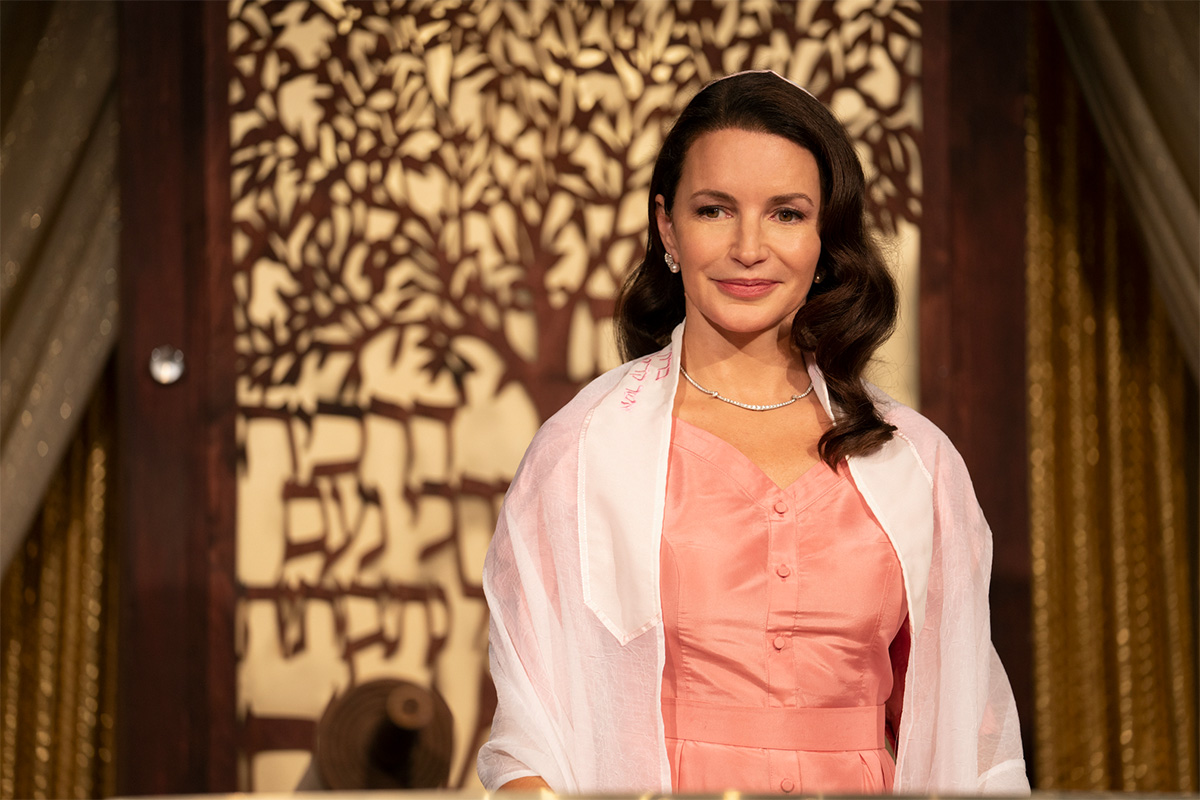As a longtime fan of “Sex and the City,” I was elated last year when I found out we’d be getting a new chapter of one of my all-time favorite shows. Like so many fans, I decided to rewatch the original six seasons (and both movies) in preparation for what was to come: iconic fashion moments, questionable relationship advice that I should have known better than to follow in my younger years, and the chicest, most stylish Jewish woman in Manhattan: Charlotte York.
Charlotte was always my favorite character. She was a smart, young Jewish woman who loved art and fashion, and who believed her fairy tale ending was waiting for her to find it (and yes, I know she wasn’t Jewish before season six, but that’s beside the point).
Charlotte’s Jewish storyline always reminded me a bit of my own. Much like her, I didn’t have a traditionally Jewish upbringing. I was raised in a very non-Jewish environment and because of that, I missed a lot of the traditional Jewish youth experiences that so many young Jews get. I never went to sleepaway camp, I didn’t grow up eating challah and matzah ball soup all the time (although as an adult I’ve witnessed the magic healing powers of matzah ball soup firsthand; it can cure everything from a common cold to a broken heart). I’ve never been to a synagogue, and I didn’t have a bat mitzvah (this had led to some serious FOMO anytime I see people sharing their bat mitzvah photos on Instagram).
Much like Charlotte often did in the last season of SATC, I’ve, too, felt stuck between these two (sometimes conflicting) worlds that I’m a part of. Seeing her mourn the “loss” of something so dear to her — Christmas, especially, resonated with me, since that particular conversation is one that I’ve had with my more traditional Jewish partner a few times now, and I still can’t imagine life without my living room smelling like fresh cut pine tree, cheesy Christmas movies and Mariah Carey’s iconic song every December. I’m all too familiar with the feeling of Judaism being this all-or-nothing thing, when in reality, it’s not like that at all.
So when the first episodes of “And Just Like That…” were released in early December last year, I was so excited to see Charlotte, Carrie, and Miranda back on my screen. It felt, in a way, like I was catching up with old friends. Despite the heartbreaking first couple of episodes, I loved every second of the new season, and especially every second that Charlotte was on screen — both because I think she’s the most stylish of the friends and because I loved seeing how she’d grown into her Jewishness. She also might be the best, most realistic representation of a Jewish convert in TV: Someone who’s just Jewish and not the trying-too-hard caricature we usually see converts portrayed as (looking at you, Astrid Weissman!).
I loved the way Charlotte explained grief and death to her kids: “[death] gives us a chance to remember how much our loved ones mean to us, so while it’s sad, it still can be beautiful.” It reminded me of what my mom kept telling me a few years ago when my grandpa passed away. I loved even more seeing her not only accept Rock’s gender identity, but proudly celebrate it and support her child while they experimented and discovered who they were.
While the show got some very valid criticism (seriously, how hard was it to use the right word — b’nai mitzvah — for the ceremony? It was right there!), seeing her organize Rock’s “they mitzvah” in a way that mixed the old with the new, and the traditional with the more progressive and modern ideas, was probably one of the highlights of the new show for me.
We’ve come a long way from the woman who wanted to strictly adhere to tradition and do things “the right way” only. Even then, when Rock made it very clear they didn’t want to go through with the ritual and vehemently refused to take part in something they didn’t fully believe in, Charlotte did something that is, in my opinion, one of the most Jewish things one can do: She worked with what she had and adapted (not before mentioning she felt like she’d “failed as a Jew” which, sadly, I’m sure is something so many of us have felt at one point or another).
She reminded me that it’s never too late to learn something new, it’s never too late for new experiences and it’s never a bad thing to add our own personal twists to our traditions. Seeing her stand at the bimah, read from the Torah, and “become a woman” at 50-something reminded me that just because my own Jewish experience has been less than traditional, it’s not any less valid and real than those who had a more traditional background and upbringing.
Who knows, maybe someday I’ll follow in Charlotte’s (very stylish) footsteps and have my own version of a bat mitzvah (or maybe I won’t, only time will tell). In the meantime, I’m growing, I’m learning and I’m adapting. For now, I’m left with the peace that comes with accepting the fact that it’s OK to not be a “traditional” Jew and that I’m allowed to adapt and do things my way, in my own time, and still be Jewish enough.



